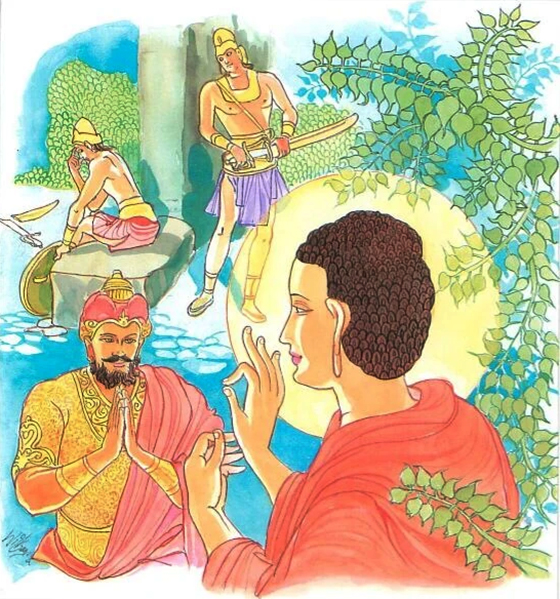The Story of the Defeat of the King of Kosala
Verse 201: Conquest begets enmity; the conquered live in misery; the peaceful live happily having renounced conquest and defeat.
The Story of the Defeat of the King of Kosala
While residing at the Jetavana monastery, the Buddha uttered Verse (201) of this book, with reference to the King of Kosala who was defeated in battle by Ajatasattu, his own nephew.
In fighting against Ajatasattu, the King of Kosala was defeated three times. Ajatasattu was the son of King Bimbisara and Queen Vedehi, the sister of the King of Kosala. The King of Kosala was ashamed and very much depressed over his defeat. Thus his lamentation: “What a disgrace! I cannot even conquer this boy who still smells of mother’s milk. It is better that I should die.” Feeling depressed and very much ashamed, the king refused to take food, and kept to his bed. The news about the king’s distress spread like wild fire and when the Buddha came to learn about it, he said, “Bhikkhus! In one who conquers, enmity and hatred increase; one who is defeated suffers pain and distress.” Continue reading













